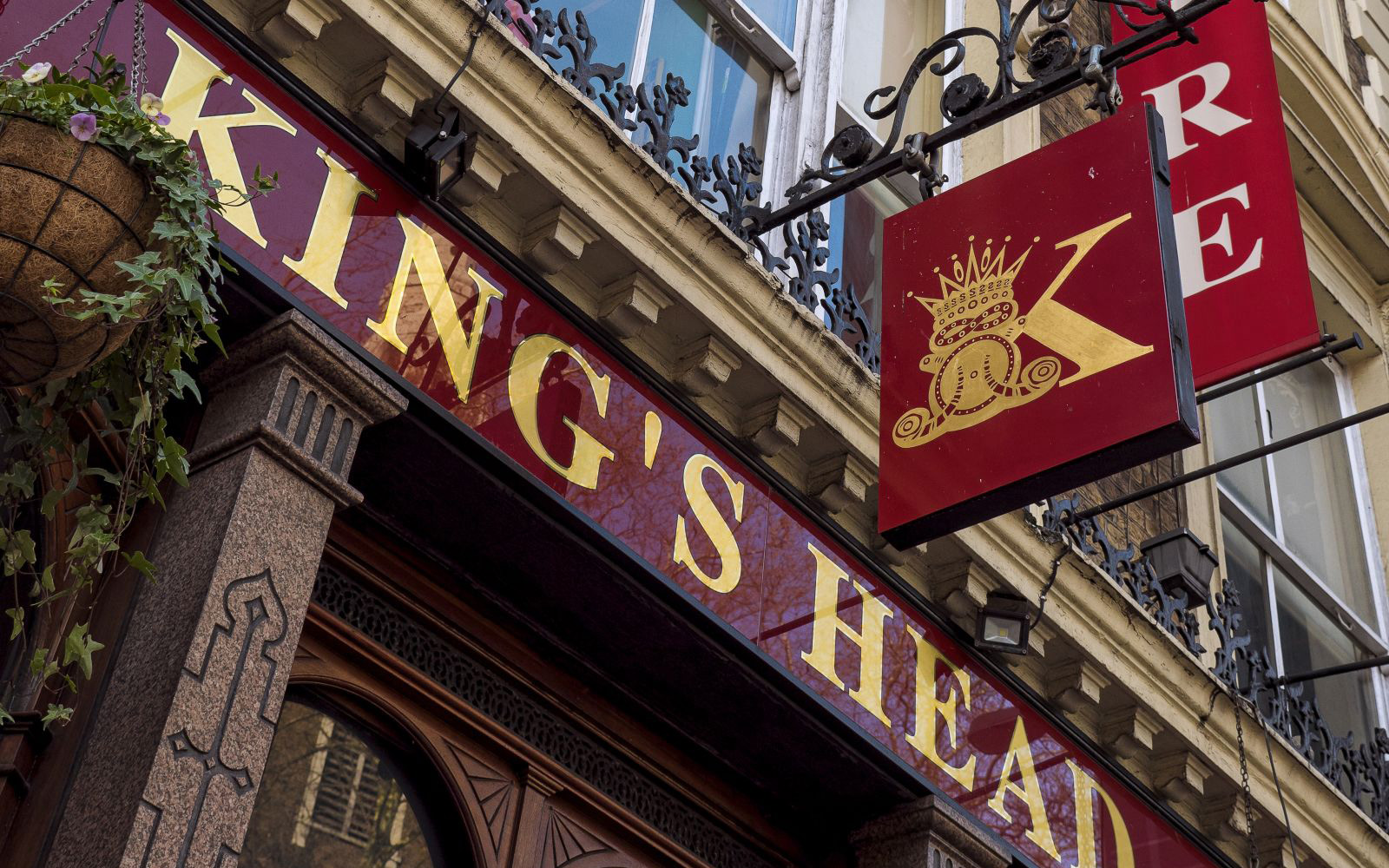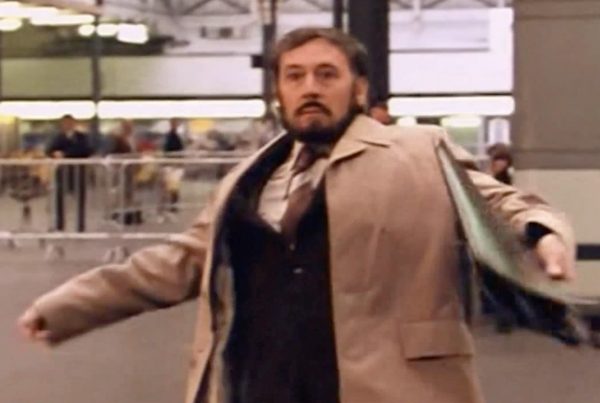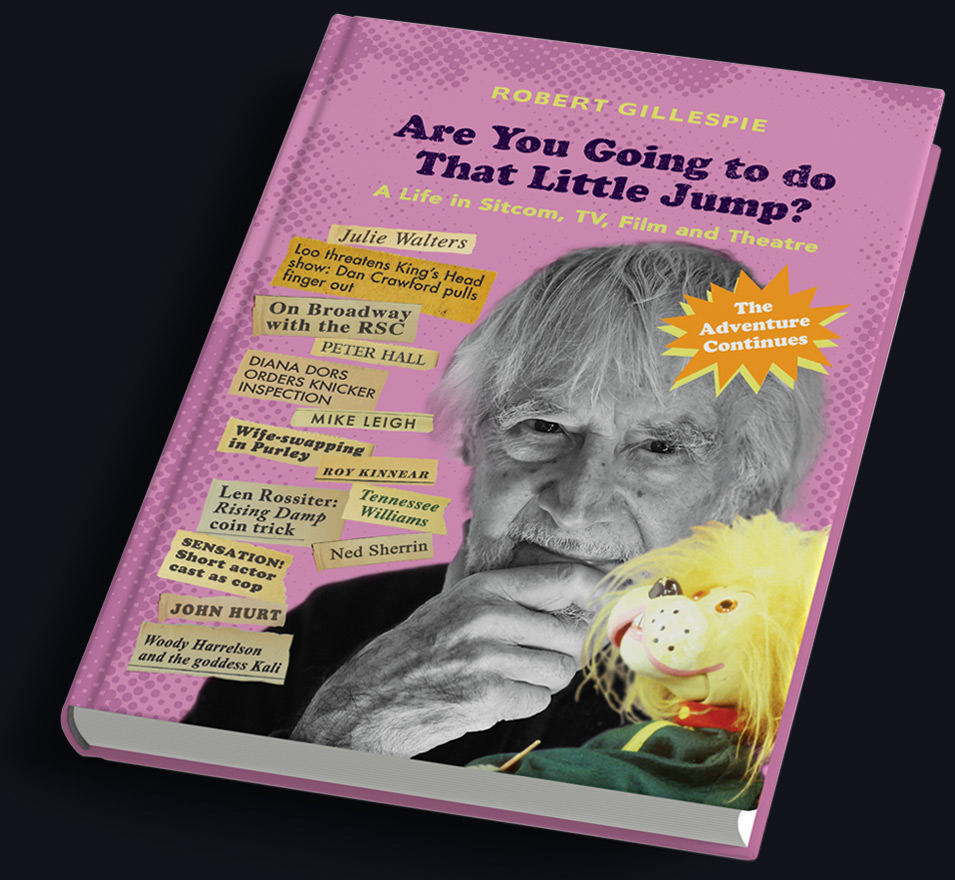Stewart Parker had written a play with music called Spokesong which ran for six months at the King’s Head. When he came up with another text, we jumped at it. Again, it had a lot of music and he called it Catchpenny Twist. Stewart was from Belfast and steeped in the troubled Northern Irish times. Catchpenny was about four young college friends. The two men and one of the girls had become teachers at the same school but became hooked on writing and singing. Quitting teaching, these three had gone into the music industry, the men as writer-entrepreneurs, the girl as a singer. The fourth girl had joined the IRA. She wanted to change society and was a killer.
The musical three are happily immersed in their work and ambitious career, building and planning, when their one-time student friend turns up – utterly changed, unrecognisable. She confronts them to say that they appeared to have sold out and seem prepared to trivialise their own lives and the searing political imperatives they should be involved in, are showing contempt for the community to which they belong. Here they are, singing and composing, when they should be out there fighting for the freedom and rights of a long-oppressed community. The three friends joke with her, suggest she calms down and enjoys her new release into the bright, wide, exciting post-academic world. With savage contempt she stops them in their tracks. Suggests they are being treacherous to a burning need for immediate political change and – in her view – were they to go on trivialising the life-state of a long-oppressed group of people they might well be in line for retribution themselves; liable to correction and re-alignment. And if they persisted on their trivialising path – their lives could be the price required. There were no neutrals in this struggle. You were on one side or the other.
Maggie Shevlin, the actress who first played the revolutionary, was a superb performer.
I’d first worked with her in Dangerous Corner and now she brought a quality of imminent threat and danger to life which spellbound the King’s Head audience within a minute of her walking on stage. Wonderful. Pure theatre.
Sadly, Maggie got decently paid work and had to leave the run. I had to re-cast.
At her audition Anna Keaveney – Maggie’s replacement – was fine. For her first three or four performances she continued fine. Then I got a ‘phone call from one of the cast; ‘Could I please come in and see the show? Something was happening; Anna Keaveney was changing her performance.’ I went in, watched. What I’d been told was true. Something ill-defined but softer was imbuing this deadly revolutionary’s persona. I spoke to Anna, after, explained that if she came across as even slightly more reasonable and forgiving and able to compromise, then all the evocation of that terror which so many people in Northern Ireland were living through – the main purpose of Stewart Parker’s script – would make no sense at all. Would not be believable. Anna offered some sort of rationalisation about the character being able to achieve her goal by persuasion, rather than through threats. I said this was dishonest, untrue to the intentions – and experience – of the author.
Revolutionary activists did not achieve their goals through argument – but by making people fear for their lives. At that time we were all still braced to read about the next atrocity in Belfast or London. Well, Keaveney said she didn’t altogether agree with me, but she would take my comments on board. I also explained that the fear of her expressed in the other actors’ lines was idiotic if she started to play her role as a pussycat. It made their acted terror look silly. I went in to check more shows. For a few, Anna Keaveney settled for a half-way-house compromise; was semi-deadly. And then she dropped all pretence of playing her part as written and tried to use the lines to make herself seem as reasonable as her fellow ex-students in the play. It became a minor show-biz disaster.
My great friend and ally, Tony Doyle, was also in the production and was as worried as I was, and he agreed to try talking to Anna. I urged the talented other members of the company to try doing the same – Nichola McAuliffe, Tony Scannell, Bryan Murray, They (unlike Tony) were reluctant because they – as mere actors – didn’t feel comfortable giving another cast member directions. In the end, none of us could make Anna Keaveney play the part as written, for which she’d auditioned.
So here’s what’s interesting – what was this about?
To be continued…





